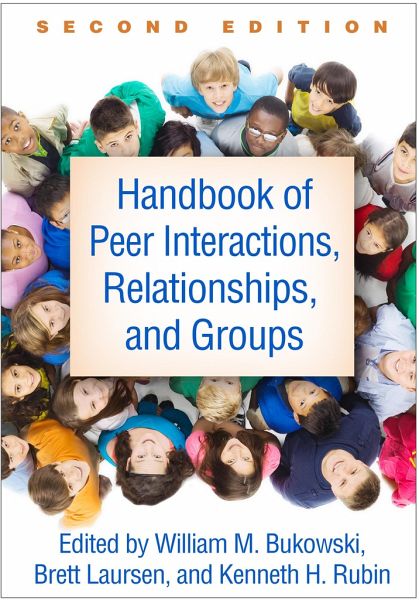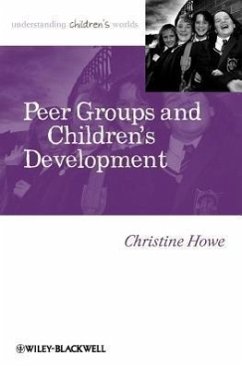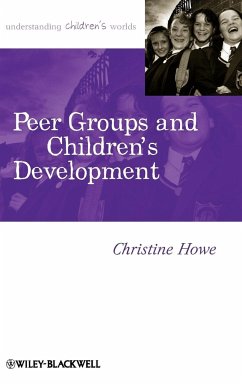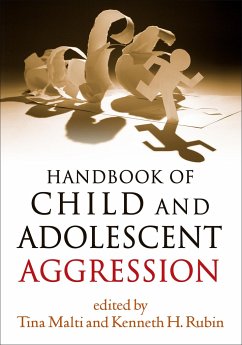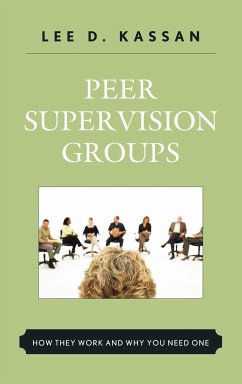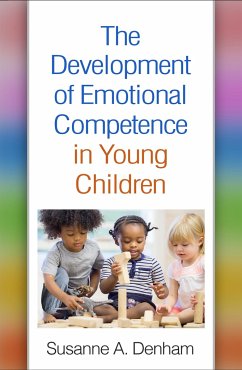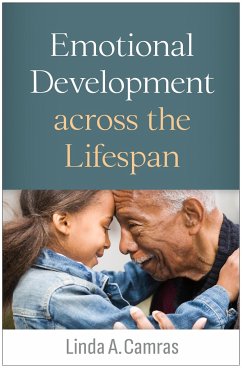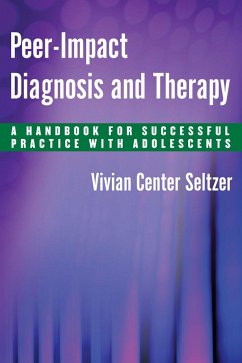Gebundenes Buch
Handbook of Peer Interactions, Relationships, and Groups
Versandkostenfrei!
Versandfertig in über 4 Wochen

PAYBACK Punkte
48 °P sammeln!




Revised edition of Handbook of peer interactions, relationships, and groups, c2009.
William M. Bukowski, PhD, is Professor in the Department of Psychology at Concordia University in Montreal, Quebec, Canada, and holds a University Research Chair in early adolescent development. From 2008-2016 he was Director of the Centre for Research in Human Development, a multidisciplinary and multi-university research center housed at Concordia. He is a recipient of the John P. Hill Memorial Award from the Society for Research in Adolescence and is a Charter Fellow of the International Society for the Study of Behavioral Development. Dr. Bukowski's research examines the features and effects of school-age children's and early adolescents' experiences with their peers. Brett Laursen, PhD, is Professor of Psychology and Director of Graduate Training at Florida Atlantic University. He is also Docent Professor of Social Developmental Psychology at the University of Jyväskylä, Finland. Dr. Laursen is a Fellow of the American Psychological Association (Division 7, Developmental), a Fellow and Charter Member of the Association for Psychological Science, and the recipient of an Honorary Doctorate from Örebro University, Sweden. He is Editor-in-Chief of the International Journal of Behavioral Development. Dr. Laursen's research focuses on friendship and romantic relationships during childhood and adolescence and their influence on individual social and academic adjustment. Kenneth H. Rubin, PhD, is Professor of Human Development and Quantitative Methodology and Founding Director of the Center for Children, Relationships, and Culture at the University of Maryland, College Park. He is a Fellow of the American and Canadian Psychological Associations, the Association for Psychological Science, and the International Society for the Study of Behavioral Development (ISSBD). Dr. Rubin is a recipient of Distinguished Contribution awards from the Society for Research in Child Development and the ISSBD, the Developmental Psychology Mentor Award from the American Psychological Association, and the Pickering Award for Outstanding Contribution to Developmental Psychology in Canada, among other honors. His research focuses on peer and parent-child relationships and the origins and developmental course of social and emotional adjustment and maladjustment in childhood and adolescence.
Produktdetails
- Verlag: Guilford Publications
- 2nd edition
- Seitenzahl: 748
- Erscheinungstermin: 20. April 2018
- Englisch
- Abmessung: 257mm x 183mm x 46mm
- Gewicht: 1451g
- ISBN-13: 9781462525010
- ISBN-10: 1462525016
- Artikelnr.: 48256264
Herstellerkennzeichnung
Libri GmbH
Europaallee 1
36244 Bad Hersfeld
gpsr@libri.de
Für dieses Produkt wurde noch keine Bewertung abgegeben. Wir würden uns sehr freuen, wenn du die erste Bewertung schreibst!
Eine Bewertung schreiben
Eine Bewertung schreiben
Andere Kunden interessierten sich für



